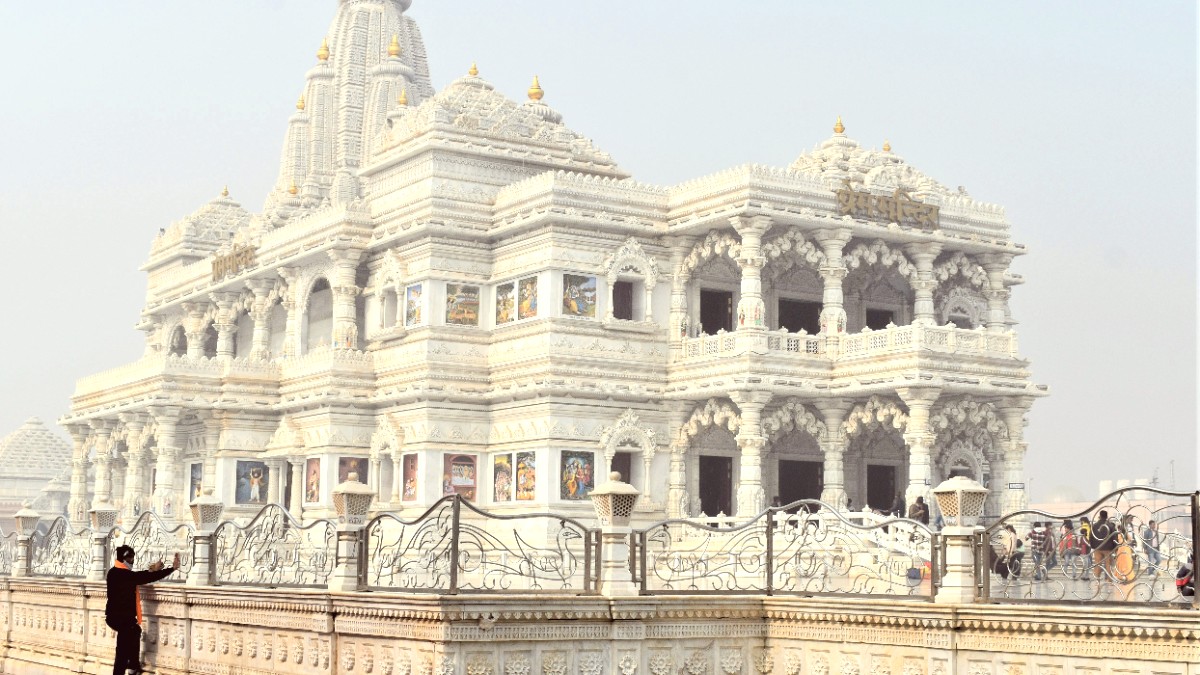
Uttar Pradesh, India
Outdoor activities in Vrindavan focus on spiritual walks and local observations.
Circumambulation path (approx. 10-12 km). Sacred walking route past temples and the Yamuna River.
Longer circumambulation (approx. 21 km) around Govardhan Hill. A highly revered pilgrimage.
Flat terrain for both. Wear comfortable shoes and carry water. Not traditional mountain hiking.
Monkeys are ubiquitous; they can snatch food and belongings. Exercise caution.
Vrindavan deep opportunities for cultural and spiritual immersion.
Daily devotional ceremonies with lamps and chanting. Evening aarti at Keshi Ghat popular and visually striking.
Chanting and devotional singing central to Vrindavan's spiritual life. You can participate.
Traditional folk theatre depicting Krishna's stories. Less frequently staged for casual tourists, often part of festivals.
Celebrated with immense fervor, especially in the week before the main day. Lathmar Holi in Barsana is famous.
Lord Krishna's birthday, celebrated with great devotion and midnight ceremonies. The town becomes intensely crowded.
Diwali (Festival of Lights) across India. Kartik Purnima with floating lamps on the Yamuna River at Keshi Ghat.
Vrindavan's wellness offerings intrinsically linked to its spiritual identity.
Almost exclusively devotional. Continuous kirtans and bhajans in temples and ashrams.
No nightclubs, secular dancing venues, bars, or pubs. Alcohol consumption highly discouraged and unavailable.
Limited to late-night aartis or temple darshans during major festivals. Most shops close by 9-10 PM.
Loi Bazar: The main market in Vrindavan. A lively atmosphere for local commerce.
Small workshops producing deities, religious paraphernalia, and traditional sweets. Observing artisans can be interesting.
Focus is on traditional, religious, and utilitarian items. Luxury shopping generally not available.
Vrindavan an unique shopping experience, mainly focused on religious items and local crafts.
Where possible, purchase directly from local artisans or small, independent shops. This directly supports local economy.
Be mindful of the origin of religious items; choose those made locally.
Bargaining common in local markets. Do this politely and with a smile. Do not bargain in fixed-price shops.
Most small shops do not international shipping. For larger purchases, arrange shipping from a larger city like Delhi. Aware of your home country's customs regulations.
Luxury and boutique shopping generally not available. The focus is on traditional, religious, and utilitarian items.
For cultural engagement, consider a food walk or visit to local workshops. This makes your visit more meaningful.